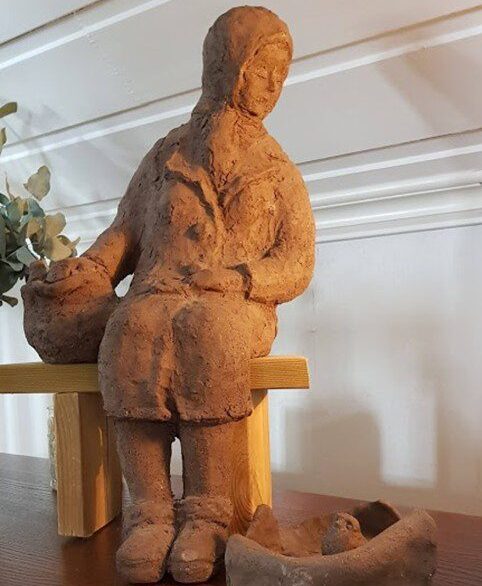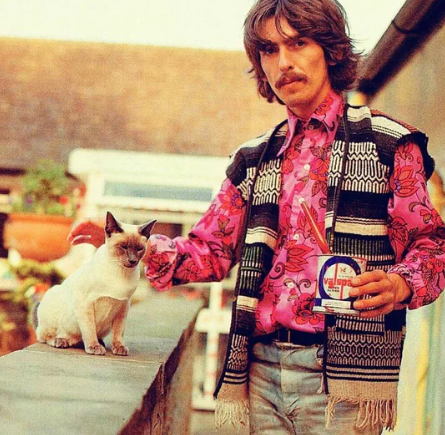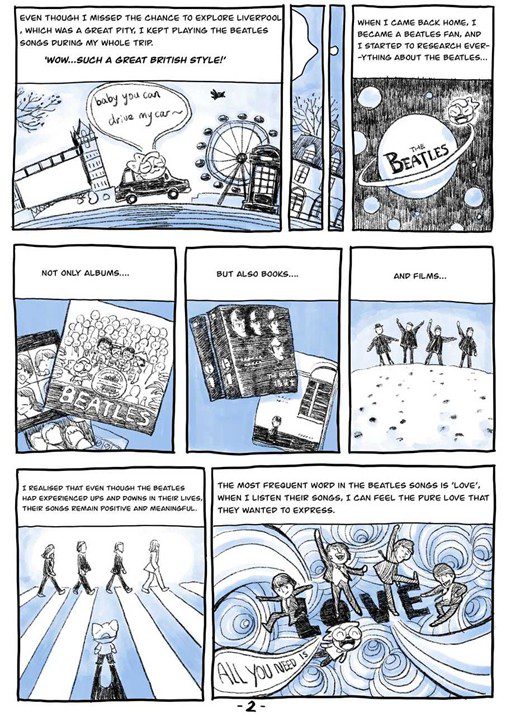I am currently writing this amidst the world’s lockdown. The devastating effects of COVID-19 have left humanity on pause, and loneliness is spreading just as quickly as the disease itself. The persistent feeling of isolation that we are collectively experiencing today reminds me of one of my favourite Beatles songs – Eleanor Rigby.
All the lonely people
Where do they all come from?
All the lonely people
Where do they all belong?
Within the bounds of St Peter’s Church, where Lennon met McCartney on that fated summer’s day in 1957, there lies a grave entitled by the name of Eleanor Rigby, who died at the age of forty-four in 1939. McCartney claimed that he was not aware of the grave’s existence before writing this four-week number one hit in 1966 but suggested that this could have been a subconscious influence within his work, thus giving the impression that this song was almost destined to be written. McCartney’s justification of the name was that Eleanor Rigby ‘sounded natural’, with Eleanor founded from The Beatles’ ‘Help!’ co-star, Eleanor Bron, and Rigby forming from the store name ‘Rigby & Evens Ltd, Wine & Spirit Shippers’, which McCartney spotted during a trip to Bristol and admired. Therefore, McCartney had no idea that this name would later become a symbol for loneliness in modern times.
As well as expressing the concept of loneliness in society, Eleanor Rigby also symbolises the homeland most dear to the Beatles. The real Eleanor Rigby worked as a scullery maid and many associate the character crafted by McCartney to be a representation of a typical Liverpudlian woman of the time. For listeners, it is easy to picture the despondent Eleanor Rigby as she ‘waits at the window’ of a home founded within one of Liverpool’s classic terraced streets, while she ‘lives in a dream’ to escape from the economic deprivation of the city’s post-war era. Perhaps the Church was Rigby’s last source of refuge, like it was for many of Liverpool’s inhabitants during times of economic hardship. Moreover, the song’s connections to Liverpool have become increasingly heightened due to the discovery of grave within the grounds of St Peter’s Church, as well as the poignant statue of Rigby, sculptured by Tommy Steele in 1982, which can be found upon Liverpool’s Stanley Street. Therefore, this makes this song particularly reminiscent of my trip to Liverpool in the summer of 2018.
Spencer Leigh, author of ‘The Beatles in Liverpool’, stated that ‘the loneliness’ of Eleanor Rigby ‘struck me as a poem from the start’, which was ‘something unprecedented in popular song.’ The poetry and cynical undertones of the song segregates Eleanor Rigby from other Beatle hits, as seen through the metaphoric verse of ‘Wearing the face that she keeps in a jar by the door. Who is it for?’. This idea of ‘the face’ preserved in ‘a jar’, alludes to the false façade of content held by many forlorn members of society to disguise their harrowing loneliness, despite the fact that they often have nobody to deceive, thus making this mask wearing pointless, as seen through the rhetorical line of ‘Who is it for?’, almost ridiculing Eleanor Rigby for her needless deception. This creates a pattern of interrogatives throughout the song, including the iconic lines in the chorus of ‘Where do they all come from?’ and ‘Where do they all belong?’, presenting the uncertainly of loneliness, due to the fact that mental isolation can often go undetected.
Loneliness is a universal principle. Despite the glamour of fame, the Beatles themselves all experienced their own personal feelings of desolation, particularly when touring. However, the Fab Four were always able to find sanctuary in one another, as seen when Paul McCartney recalled that ‘George once told me I smelt like home’. This can be further emphasised when George Harrison confessed that he ‘always felt sorry for Elvis because he was on his own’, meaning that the Beatles were almost a refuge to each other, an escape from the madness of the life infiltrated by Beatlemania – a reminder of the protection of home. This feeling of reassurance emitted by the Beatles has continued, as fans today can find comfort within their lyrics and ‘words of wisdom’ and use the band as a form of cure to the brutal disease of Eleanor Rigby’s loneliness.
The Beatles are globally proclaimed for their preaching of happiness within their music, as the abstract noun of ‘love’ is the most common Beatles lyric, appearing 312 times in 42% of their songs. However, within Eleanor Rigby, the Fab Four have crafted an anthem for the lonely and vulnerable, which essentially unites even the most outcast members of society, thus bringing forward this reoccurring theme of reunion within their songs, which is most prominent within their 1969 hit of ‘Come Together’. This sense of community emitted by the Beatles is one of my favourite things about the celebrated group. Their music manages to unite the people, which is often thought to be seemingly impossible. I have been fortunate enough to experience this first-hand as I have met one of my best and most cherished friends through our combined love for the Fab Four.
To me, Eleanor Rigby is an illustration of the classic Beatle doctrine of always making sure to ‘take a sad song and make it better’. Search for the hidden meaning of happiness. Look for the good within the bad.
Eleanor Rigby reminds me of John Lennon’s quote, in which he said ‘don’t underestimate the importance of happiness’. The Fab Four themselves have become a symbol of happiness for many people and this is one of the many reasons as to why I value the Beatles so greatly.
– Freya Keeping
More in this series

#PaperbackWriter – Eleanor Rigby Statue

#PaperbackWriter – From monkeys to Martha: The influence of animals on The Beatles

#PaperbackWriter – Do you know The Beatles?

#PaperbackWriter – A Beatles Fan’s ‘Pilgrimage’ to Liverpool

#PaperbackWriter – It’s Not A Dream

#PaperbackWriter – Learn to play with Leo!

#PaperbackWriter – Michael’s Comic Illustration

#PaperbackWriter – Pam Newton

#PaperbackWriter – Rainer’s Poem

#PaperbackWriter – Revolver

#PaperbackWriter – Sarah Stacey

#PaperbackWriter – There are places I’ll remember

#PaperbackWriter – What Made The Beatles Stand Out From The Crowd?

#PaperbackWriter – You Did Pass The Audition